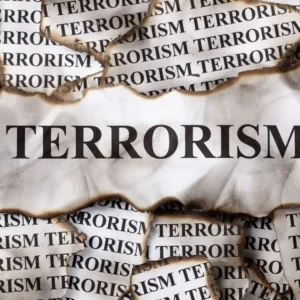Former US President Donald Trump recently announced on his Truth Social platform that he was designating antifa as a “major terrorist organization.” In his post, he described the movement as “a sick, dangerous, radical left disaster” and called for investigations into its alleged funders. This is not the first time Trump has targeted antifa, as he previously made similar statements during his first term, particularly around the 2020 protests following George Floyd’s killing.
Antifa, short for “anti-fascist,” is not a centralized organization but rather a loosely connected network of activists and groups that oppose far-right and fascist ideologies. Historians and experts emphasize that antifa represents a political approach rather than a formal entity with leaders or headquarters. Its roots trace back to anti-Nazi resistance movements in the 20th century, and in the US, its visibility grew significantly after 2016. Groups like Rose City Antifa in Portland have been among the more active, often employing tactics such as exposing far-right figures and organizing counterprotests.
Over the years, antifa-aligned activists have been involved in several notable confrontations. These include a violent restaurant attack in Chicago in 2012, clashes in Berkeley, California in 2017 during Trump-era rallies, and counterprotests during the Charlottesville “Unite the Right” rally that same year. While critics link antifa to violent incidents, members generally frame their actions as resistance against white supremacy, fascism, and authoritarianism.
Funding for antifa is difficult to trace, given its decentralized structure. Experts argue that claims of wealthy backers orchestrating the movement are largely unfounded, with most resources coming from grassroots donations or members themselves. This makes Trump’s call to investigate antifa’s funding difficult to execute.
Legally, experts note that Trump has no constitutional or statutory authority to designate antifa as a terrorist organization. US law allows the Secretary of State to label foreign groups as terrorist organizations, but no equivalent statute exists for domestic groups. Moreover, legal scholars warn that targeting antifa in this way could raise serious First Amendment concerns, since it could criminalize political expression and opposition. The FBI has also previously stated that antifa is an ideology, not an organization, complicating any attempt to label it as terrorism.
Trump’s renewed focus on antifa comes in the wake of the shooting of conservative commentator Charlie Kirk in Utah. The accused, Tyler Robinson, has been linked by some conservative social media accounts to antifa, though these claims rely on misinformation and doctored images. The incident has fueled a wave of online speculation and given Trump another opportunity to revive his rhetoric against the movement.
Ultimately, while Trump’s latest declaration resonates with his political base, the amorphous nature of antifa makes it unlikely to be officially recognized as a terrorist group. Instead, the debate underscores the broader polarization in US politics, where antifa has become a symbol in partisan battles over extremism, protest, and the boundaries of political dissent.






